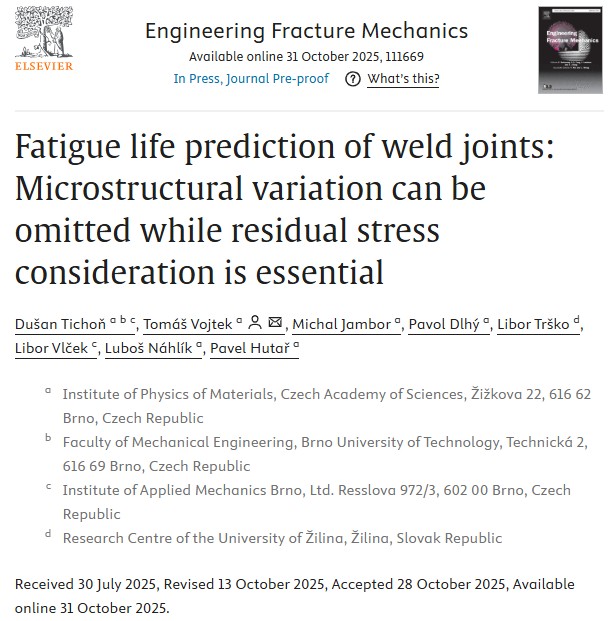
Researchers of the Department of Materials Engineering participated in research investigating the fatigue crack growth process in P265GH low-carbon steel welded joints.
The results of extensive experimental work have shown that residual stresses are the primary controlling factor for predicting fatigue crack growth in welded joints, and that microstructural changes have a much smaller influence than originally assumed. In this study, researchers from the Research Center UNIZA drew on their many years of experience with the X-ray diffraction method and its use for evaluating residual stresses.
The study was published in a renowned journal Engineering Fracture Mechanics (Q1, Impact Factor 5.3). The full article is awailable at https://www.sciencedirect.com/science/article/abs/pii/S0013794425008707?via%3Dihub
